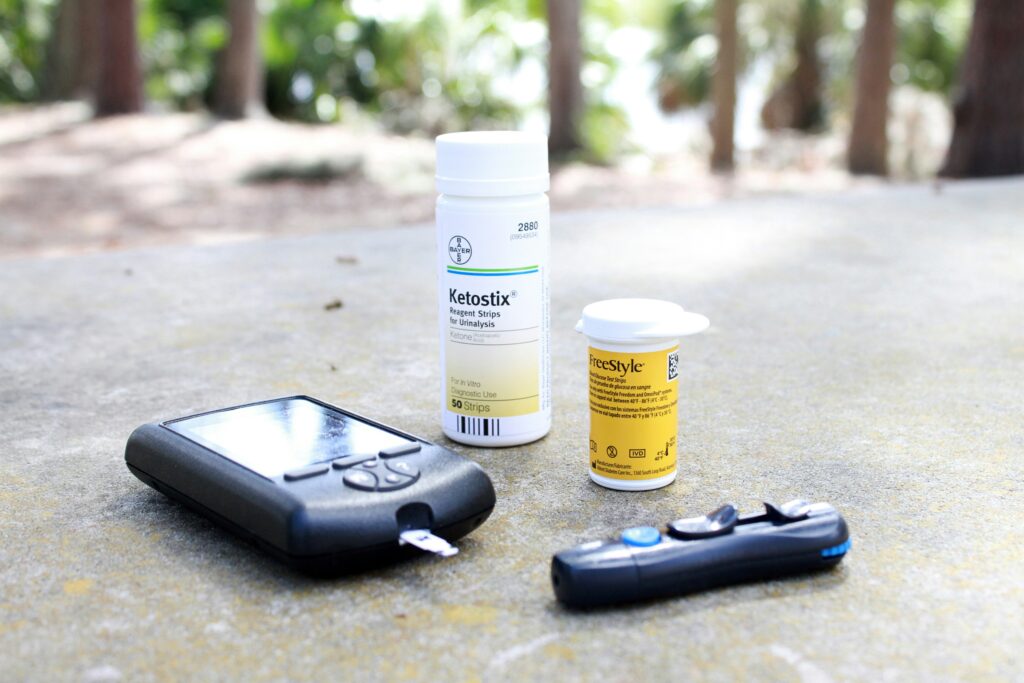In the fast-paced world of healthcare, it’s easy for healthcare professionals to neglect their own well-being. That’s why self-care boundaries are so important. In a video by Psych Hub, co-hosts Amy and Paul discuss the significance of setting personal boundaries and recognizing the balance between what you need in your workplace and what your workplace needs from you. They provide valuable insights and tools to prevent burnout and protect yourself from the demands of the healthcare industry. It’s a reminder that taking care of ourselves is not only essential for our own health but also for providing quality care to others.
Living with a chronic condition can make this need for self-care even more crucial. Amy and Paul touch on how managing a chronic condition, whether it be physical or mental, requires flexibility in recognizing and addressing our varying needs from day to day. By advocating for ourselves and working together to create a culture that supports individual well-being, we can proactively take care of ourselves and better serve those in need. So, let’s remember the importance of self-care boundaries and prioritize our own well-being in the demanding field of healthcare.

The Importance of Self-Care Boundaries in Healthcare: Insights from Psych Hub
When it comes to working in the healthcare field, self-care should be a top priority for healthcare professionals. Taking care of oneself not only promotes personal well-being but also ensures that healthcare practitioners are able to provide the best care to their patients. One crucial aspect of self-care is setting personal boundaries. Establishing these boundaries helps healthcare professionals strike a balance between their personal health needs and the demands of their workplaces. In this article, we will explore the significance of self-care boundaries in healthcare and delve into the insights provided by Psych Hub, an educational service that specializes in mental health and well-being.
Setting Personal Boundaries
Setting personal boundaries is essential for healthcare professionals, especially those living with chronic conditions. Reflecting on and defining these boundaries allows individuals to understand their needs in the workplace and how their workplace can meet those needs. It helps them evaluate the balance or lack thereof between personal health and workplace demands. By setting personal boundaries, healthcare professionals can ensure that their personal health is not negatively impacted by the demands of their profession.

Understanding the Balance between Personal Health and Workplace Needs
To strike a balance between personal health and workplace needs, healthcare professionals must assess their health requirements in the workplace. By understanding what they need and communicating those needs to their supervisors and colleagues, they can advocate for their personal health needs. This balance is crucial as it directly impacts the well-being of healthcare professionals. When personal health needs are met and there is a harmonious equilibrium between personal and professional life, healthcare professionals are better equipped to provide optimal care to their patients.
Preventing Burnout
One of the significant risks faced by healthcare professionals is burnout. Burnout is a state of physical, mental, and emotional exhaustion caused by prolonged stress and overwork. Recognizing the signs of burnout is the first step in preventing it. Psych Hub emphasizes the importance of self-care in preventing burnout. By prioritizing self-care and implementing specific strategies, healthcare professionals can protect themselves from burnout and maintain their well-being.

Ten Tools for Healing and Protection from Healthcare Burnout
Psych Hub offers ten tools that healthcare professionals can utilize to heal and protect themselves from healthcare burnout:
1. Prioritizing Self-Care
By making self-care a priority, healthcare professionals can ensure that their physical, mental, and emotional well-being is not compromised.
2. Establishing Healthy Boundaries
Setting boundaries allows healthcare professionals to preserve their personal space and protect themselves from excessive demands.
3. Practicing Mindfulness
Engaging in mindfulness exercises helps healthcare professionals stay present and focused, reducing stress and promoting well-being.
4. Seeking Support
Seeking support from colleagues, friends, or professional counselors can provide healthcare professionals with the emotional support they need during challenging times.
5. Engaging in Physical Activity
Regular physical activity releases endorphins, reduces stress, and improves overall well-being.
6. Nurturing Relationships
Maintaining healthy relationships with loved ones and colleagues can provide emotional support and contribute to overall well-being.
7. Setting Realistic Expectations
Setting realistic expectations for oneself and others helps healthcare professionals avoid excessive pressure and prevent burnout.
8. Taking Regular Breaks
Taking regular breaks throughout the workday allows healthcare professionals to recharge and prevent exhaustion.
9. Seeking Professional Help
If burnout becomes overwhelming, seeking professional help from therapists or counselors can provide guidance and support.
10. Engaging in Activities Outside of Work
Participating in activities outside of work, such as hobbies or leisure activities, helps healthcare professionals unwind and find enjoyment outside of their professional roles.
By utilizing these tools, healthcare professionals can actively prevent burnout and protect their well-being.
Recognizing the Variance in Self-Care Needs
Psych Hub emphasizes the need to recognize the variance in self-care needs, particularly for healthcare professionals living with chronic conditions. Chronic conditions, whether physical or mental, can significantly impact an individual’s ability to provide care and manage their personal well-being. Understanding this impact and managing the unique challenges posed by chronic conditions allows healthcare professionals to adapt their self-care practices accordingly. Flexibility plays a significant role in self-care for individuals with chronic conditions, as the required care may vary from day to day.
Flexibility and Adaptation in Self-Care
Self-care is not a one-size-fits-all approach. Psych Hub emphasizes the importance of recognizing the changing nature of self-care needs. Healthcare professionals need to adapt their self-care practices to cater to day-to-day variations in their well-being. By being flexible and adaptable, healthcare professionals can ensure that their self-care practices are effective and aligned with their ever-changing needs.
Promoting Diversity in Self-Care Practices
Psych Hub also emphasizes the importance of promoting diversity in self-care practices. Different individuals have different approaches to self-care, and cultural and individual differences should be acknowledged and respected. Embracing diverse experiences and voices in self-care enables healthcare professionals to have a more comprehensive understanding of what self-care means and what practices work best for them. By encouraging diversity in self-care, healthcare professionals can create a more inclusive and supportive environment for everyone.
Proactive Approach to Self-Care
Psych Hub promotes a proactive approach to self-care. Taking the initiative to prioritize self-care and anticipate changing self-care needs is crucial for healthcare professionals. Being proactive allows individuals to be better prepared and equipped to deal with the challenges that may arise. By actively engaging in self-care, healthcare professionals can enhance their overall well-being and resilience.
Conclusion
In conclusion, self-care boundaries are of utmost importance in the healthcare field. By setting personal boundaries, healthcare professionals can strike a balance between their personal health needs and workplace demands. Understanding the balance between personal health and workplace needs, preventing burnout, and utilizing tools for healing and protection are vital for maintaining well-being. Recognizing the variance and adapting self-care practices, promoting diversity, and adopting a proactive approach to self-care further contribute to the overall well-being of healthcare professionals. By prioritizing self-care boundaries, healthcare professionals can optimize their personal health and in turn, provide the best possible care for their patients.

